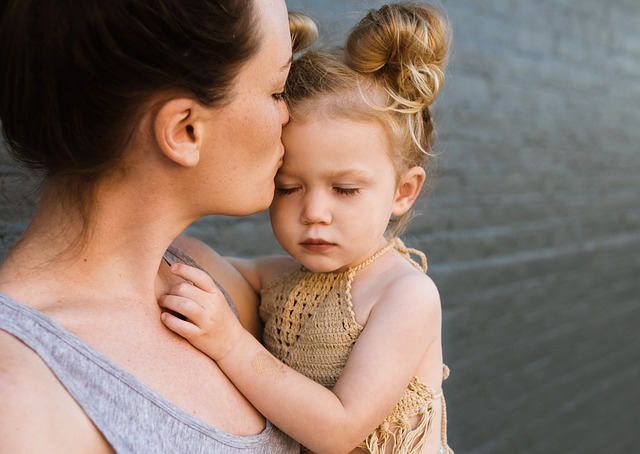Even if they are great at parenting, so many parents look for ways to enhance their skills. They are generally not content with their accomplishments while raising their children. As a result, they work hard to improve their competence in parenting.
But, it is never easy to become better at something when you don’t have a manual in your hand that you can consult to. Especially if the subject matter is taking care of a person who doesn’t have the skills to survive in nature all by him/herself, without a caregiver.
According to recent research, %69 of parents claim that they would use them to become better parents if they were more aware of positive parenting strategies. Studies also shows that there are some very effective ways that can help you raise a better kid.
Even though there is no manual for this, there are still some things you can do to become a better parent and raise your kid by providing better conditions in which he/she can grow up healthier.
To help you achieve that goal, in this article we will try to explain the ways you can improve your parenting skills in detail and we will also provide a checklist at the end as a cheat sheet for your convenience.
Here are 11 tactics to help you become a better parent:
1) Express your love
Your kid doesn’t just depend on you for his/her vital physiological needs to survive. He/she also needs you to be able to give him/her support and love to build a proper bond with you so that his/her future relationships can also be healthier.
To express your love, you need to give your attention to him/her when he/she is trying to talk to you. Participate and actively listen to him/her so that he/she can get the attention he/she needs.
If you are trying to do this with a teenager and fail to get the results you want, don’t give up. Teenagers may be too hard to handle at times since they are going through puberty. They might not be interested in your efforts to talk with them but don’t get discouraged by that.
Another way of showing your love is spending quality time with your kids. Even playing games with them is enough for this. If you join him/her when he/she is playing games alone, you will show him/her that you love spending time with him/her. Not only that, but you will also be helping him/her gain new skills.
2) Be a good role model
If you want your kids to behave well, you have to set a positive example for them first. That way, they will see that the way you behave is the right one and they will want to become like their role model, you.
After all, you are a human being too. Just like everyone else, you are not perfect. So, you might need to step up and become a better person for them to see what a good role model looks like.

3) Don’t expect to agree with your kid on every single topic
There is no doubt that your kid will believe and behave in a way that you don’t approve at some point in his/her life. But you have to remember that no two people are the same and his/her being your kid doesn’t mean that you have to be the same in every single way. More importantly, that is just impossible.
Therefore, if he does something that you don’t approve, remember that your love shouldn’t depend on what you or he/she believes in. If you want to be able to give him/her unconditional love, you have to accept that you don’t have to approve everything he/she does and believes in. Agree to disagree.
This might be a very important problem you are struggling with, especially if your kid is a teenager. That is why you should never forget to let them be aware of the fact that you will love them no matter what since a teenager might easily turn his/her back on you.
It is not an easy thing to do, of course, but it is something you have to deal with if you want to improve your parenting skills. Never confuse love with approval.
4) Keep your negative comments specific to the behavior
If your kid does something he/she shouldn’t, don’t get carried away and start insulting your kid. Know that just the behavior itself doesn’t define who he/she is.
You don’t have to hurt his/her self-esteem by insulting him/her when all he/she did was something wrong. So, if you are going to criticize, make sure to keep your criticism specific to his/her behavior and don’t turn this into a discussion about who he/she is.
5) Appreciate the effort regardless of the outcome
Your kid can’t possibly be the best at everything. He/she may not even be the best at anything and it is totally okay. You shouldn’t put too much pressure on a kid.
The only thing that matters is their effort. Therefore, no matter what the outcome is, try to praise their willingness to achieve something. Let them know that they tried their best and that is way more important than the result.
6) Don’t overreact
Being able to control your emotions is something that will help you in every aspect of life. It will also help you increase your parenting skills.
Don’t get carried away by your anger and overreact by hurting your child. Don’t let them fear of you. Try to control your negative and intense feelings.
If you ever feel like you can’t handle the situation well, wait until you calm down and choose your words carefully while you are talking with your kid. Consider whether the thing you are about to say is vital to fixing the situation or it is just judgemental and hurtful.
Let’s say you failed to calm yourself down though. Now what? In that case, take responsibility for your actions and apologize for overreacting. But still, if you keep trying, you will eventually learn how to be in control of your emotions.
7) Be more rational and understanding
When your kid wants something, make sure that you are reasonable if you are rejecting his/her request. Try to explain to him/her why you are rejecting him/her so that she can understand your purpose and maybe try to put him/herself in your shoes.
Also, try to be more flexible and understanding. If he/she doesn’t want something extreme, try to find a common ground so that you both can be happy about the outcome.
It is also crucial to be rational and understanding if he/she does something he/she shouldn’t. You shouldn’t give your kid a harsh punishment if he/she just made a small mistake. Make sure that the punishments you imposed on your kid are in line with his/her actions.
8) Give your kid some free space
Parents want to protect their kids from every possible danger, even from the smallest ones. It is completely normal if you are one of these parents. Although it is true that they are so vulnerable, you have to try your best to give your kid some free space to be able to grow healthy.

Some parents might think that danger only comes from the environment. Yes, sometimes
For example, you have to give your child the opportunity to spend time and communicate with other kids and not forbid going out completely. If you don’t allow this, your kid won’t be able to develop the social skills he/she might need in the future. You should allow him/her hang out with other kids.
Another way of violating this might be your doing every single thing for your child. Your kid depends on you to survive but to some extent. He/she doesn’t need you to do every little thing. He/she has to be able to do at least a few things him/herself.
Never make the mistake of over-functioning. If you let them take care of some stuff they need, it will boost their self-esteem. However, if you don’t do this they will depend on you even when they grow up but this won’t be healthy as they need to learn how to stand on their own feet when the time comes.
You have to be able to give them the free space they need so that they would be able to gain new skills in life. Your kid should be able to face the obstacles in life on his/her own sometimes and he/she cannot learn how to do that while you are keeping him/her away from his/her given right to interact with the environment.
9) Don’t have an argument with your spouse in front of your child
Couples fight, that’s a given fact. Nevertheless, the number of discussions you have with your partner might increase especially if you have a kid since raising a kid is a really hard job.

You should be careful about where you are having this fight though. A fight you might have with your partner in front of your kid may affect their behavior adversely. We already discussed how being a role model is very important when you are raising a kid and a fight is certainly not something they should witness.
But let’s say you are already having an argument with your spouse and your kid is there. Then, try to choose your words carefully and respect your partner while discussing things so that your kid can learn how to have a logical, respectful and open-minded argument.
10) Don’t be afraid to ask for help
If you are going through a difficult time in your life and feeling like you are not taking care of your kid as much as you want to, don’t be shy to ask for help from people. Your kid might be going through a difficult period too, so at least make sure that you know what he/she’s going through.
Let’s say you lost someone you love and you are not handling the situation well enough to support your kid. Remember that there is nothing wrong with asking for help. In such a case, you can kindly ask your kid’s teacher to pay attention to him/her so that you won’t miss anything that he/she might be going through.
11) Don’t neglect yourself
This is probably one of the most important things to keep in mind while you are raising a kid. You might ignore your needs, forget about them even, for the sake of taking care of your kid.
But you can’t take care of your child well if you are not taking care of yourself. For example, you have to get enough rest, that will help you make rational decisions. It will also help your mood get better and in turn, this will prevent you from overreacting.
Some of these things on the list may seem hard to apply in real life but if you try hard enough, it will help you improve your parenting skills. It would be good for you to remember that there is no such thing as a great parent though. So don’t put so much pressure on yourself and stress yourself out while trying to be great.
In Summary
There is no problem with you trying to improve your parenting skills. So again, for the sake of simplicity, here is a checklist of the things we suggested in this article for you.
- Express your love
- Be a good role model
- Don’t expect to agree with your kid on every single topic
- Keep your negative comments specific to behavior
- Appreciate the effort regardless of the outcome
- Don’t overreact
- Be more rational and understanding
- Give your kid some free space
- Don’t have an argument with your spouse in front of your child
- Don’t be afraid to ask for help
- Don’t neglect yourself
